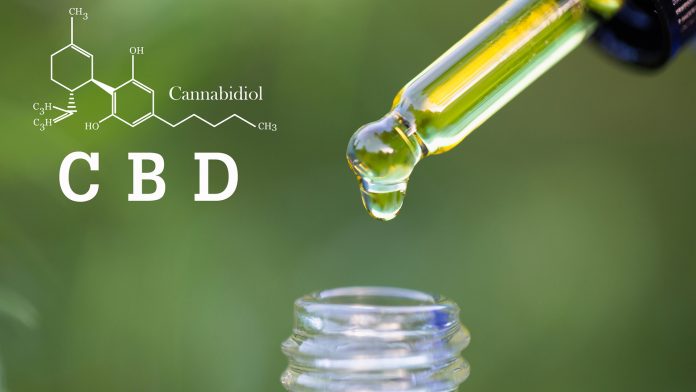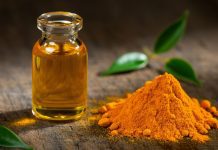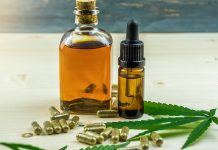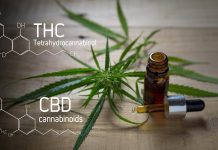
A pilot study revealed that cannabidiol potentially halves the severity of symptoms from treatment-resistant anxiety in young people.
The Cannabidiol Youth Anxiety Pilot Study, led by Orygen, discovered that after 12 weeks of treatment with cannabidiol, anxiety severity and impairment was reduced by 42.6% on average in young people with treatment-resistant anxiety.
Professor Paul Amminger, the leader of the study from Orygen, commented: “The young people had fewer panic attacks and could do things which they were previously unable to do like leave the house, go to school, participate in social situations, eat at restaurants, take public transport or attend appointments by themselves. That’s an amazing change in the group with treatment-resistant, long-standing severe to very severe anxiety.”
The findings could have a significant effect on the youth population, who are disproportionately impacted by anxiety. Australian Bureau of Statistics data suggests that anxiety is the most common form of mental ill health among young people, affecting 31.5% of those aged 16 to 24 – almost double the rate of the general population.
Professor Patrick McGorry, the study co-investigator and Orygen Executive Director, said: “We’re seeing more and more young people experiencing anxiety – it’s the fastest growing form of mental ill-health in young people, and we urgently need innovation in treatment. Cannabidiol is a promising treatment option which appears safe and effective.”

What is cannabidiol?
Cannabidiol is a non-toxic component of the Cannabis sativa plant and is often referred to as CBD. Orygen has been exploring cannabidiol as an anxiety treatment after they discovered it was effective in alleviating anxiety in adults.
Cannabidiol has already been approved by the Therapeutic Goods Administration in Australia to treat children with rare forms of epilepsy and for clinical trials for children with Tourette Syndrome, Fragile X syndrome, autism spectrum disorder and intellectual disability.
Professor Amminger said: “It’s important to stress that cannabidiol does not induce any significant side effects or lead to the emergence of any neurological or psychiatric manifestations. Cannabidiol is non-intoxicating and doesn’t contain tetrahydrocannabinol (THC), so it doesn’t cause alterations in thinking and perception, it doesn’t make you ‘high’, and it’s not addictive. Cannabidiol has been used to treat addictive behaviours in other research trials and can reduce some of the adverse and intoxicating effects of THC.”
The Cannabidiol Youth Anxiety Pilot Study
The research involved 31 participants aged 12 to 25 recruited from Orygen’s primary care services who had a diagnosed anxiety disorder and had not shown a significant improvement in symptoms following at least five cognitive behavioural therapy (CBT) sessions.
Professor Amminger said: “The problem with current frontline treatments for anxiety – CBT and selective serotonin reuptake inhibitor (SSRI) antidepressant drugs – is that they only work in about half of the people who try them. Anxiety disorders are very common, leaving many young people untreated, struggling with symptoms and developing secondary conditions, for instance, depression and substance use disorders.”
The starting dose of cannabidiol for the participants was one 200mg capsule daily, increasing to 400mg after one week. Individuals who did not experience a significant improvement increased the dose at 200mg increments up to 800mg daily, with all participants being offered biweekly CBT for 12 weeks.
Participants completed a questionnaire on symptoms such as panic attacks, situational anxieties, worries and flashbacks. Results showed that treatment-resistant anxiety symptoms were reduced on two different scales – a clinician-rated scale of 50.7% and a self-rated scale of 42.6%.
Professor Amminger commented: “Our pilot study found that cannabidiol not only helped to reduce anxiety symptoms, but it was also very well tolerated – the most common side-effects were mild sedation and mild fatigue, but that was at the time when doses were increased and usually went away after a couple of days. We did not see side-effects like suicidal thoughts, irritability or sleep problems, which are not uncommon in people taking SSRIs.”
Future research
Despite the promising results, the team explained that further studies are required.
“An open-label pilot study is limited by its design. To see a treatment effect in the treatment-resistant group is encouraging, but it could still be a placebo effect. The next step is a randomised controlled trial, the gold standard for testing a new intervention. Such a trial needs to be done in a much larger group – around 200 to 250 young people – to enable us to say with some certainty that there is, or is not real treatment benefits and effects,” Professor Amminger concluded.







